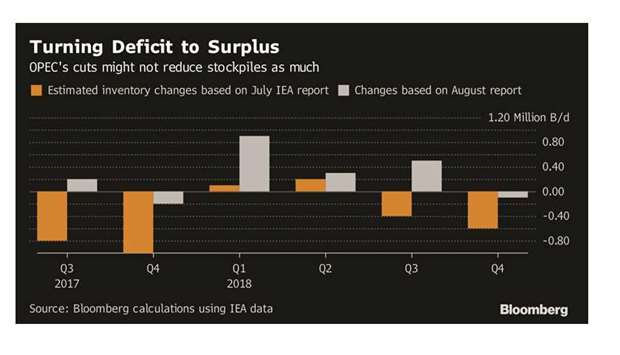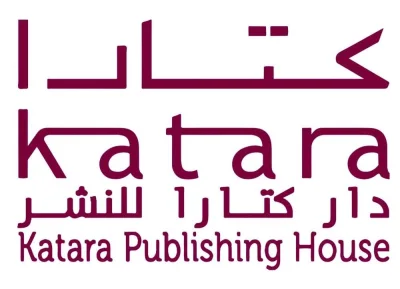World oil markets are re-balancing as the Organisation of Petroleum Exporting Countries and its allies implement production cuts, the IEA said in its monthly report. Still, inventories remain high and the volume of crude needed from Opec is less than previously thought as consumption in some developing nations had been overestimated, it said.
Oil prices have lost about 9% in London this year on concern that supply curbs by Opec and partners including Russia aren’t aggressive enough to clear a global surplus.
The agency lowered projections for the amount of crude required from Opec this year and next by about 400,000 barrels a day. About 32.6mn barrels a day will be needed from the group this year, less than the 32.84mn it pumped in July.
There are also growing doubts that all the countries involved in the accord to reduce supply are fully committed, the IEA said.
Opec’s rate of compliance with the cutbacks slipped last month to 75%, the lowest since the accord started in January. Iraq’s implementation was just 34%, Venezuela’s 28% and the UAE’s 53%. Adherence among the non-members coordinating with Opec was at 67%. Despite the reduction in total demand estimates, the rate of growth for this year is stronger than previously thought, at 1.5mn barrels a day.
“Producers should find encouragement from demand, which is growing year-on-year more strongly than first thought,” the IEA said.
Opec’s cutbacks are having some success as global inventories declined in the second quarter by about 500,000 barrels a day, according to the agency. While that’s narrowing the surplus versus the five-year average – Opec’s stated objective – stockpiles were still 219mn barrels a day above this level at the end of June, the agency said.
With a lower demand outlook and higher Opec output, “stock draws later in the year are likely to be lower than first thought,” it said.
Meanwhile, Opec’s two biggest producers agreed to strengthen their commitment to production cuts and maintain balance in world crude markets, Saudi Energy Minister Khalid al-Falih said after talks with his Iraqi counterpart Jabbar al-Luaibi, according to the kingdom’s state news agency SPA.
The two ministers also agreed to ensure coordination of their nations’ oil policies, Saudi Press Agency reported on Thursday, citing comments by al-Falih after their meeting in the Red Sea city of Jeddah.
Saudi Arabia, the largest member of the Organisation of Petroleum Exporting Countries, has borne the brunt of output cuts aimed at ending a global oversupply weighing on prices. Compliance by Iraq, Opec’s second-biggest producer, slumped to 29% in June, its lowest since the output limits took effect in January, according to data from the International Energy Agency. Opec and allied suppliers agreed to extend their cuts through next March.
Al-Falih’s remarks came a day after Opec said that Iraq, the United Arab Emirates and Kazakhstan – which have all lagged in making the output reductions they promised – affirmed that they would adhere to the cuts accord. That meeting, in Abu Dhabi, was led by Kuwait and Russia and was scheduled after several oil-supplying nations faltered in their pledges to curb output. Saudi Crown Prince Mohammed bin Salman also met with Iraq’s al-Luaibi in Jeddah and discussed coordinating oil policies and the two countries’ commitment to their pledged cuts until global markets come into balance, SPA reported
earlier.



